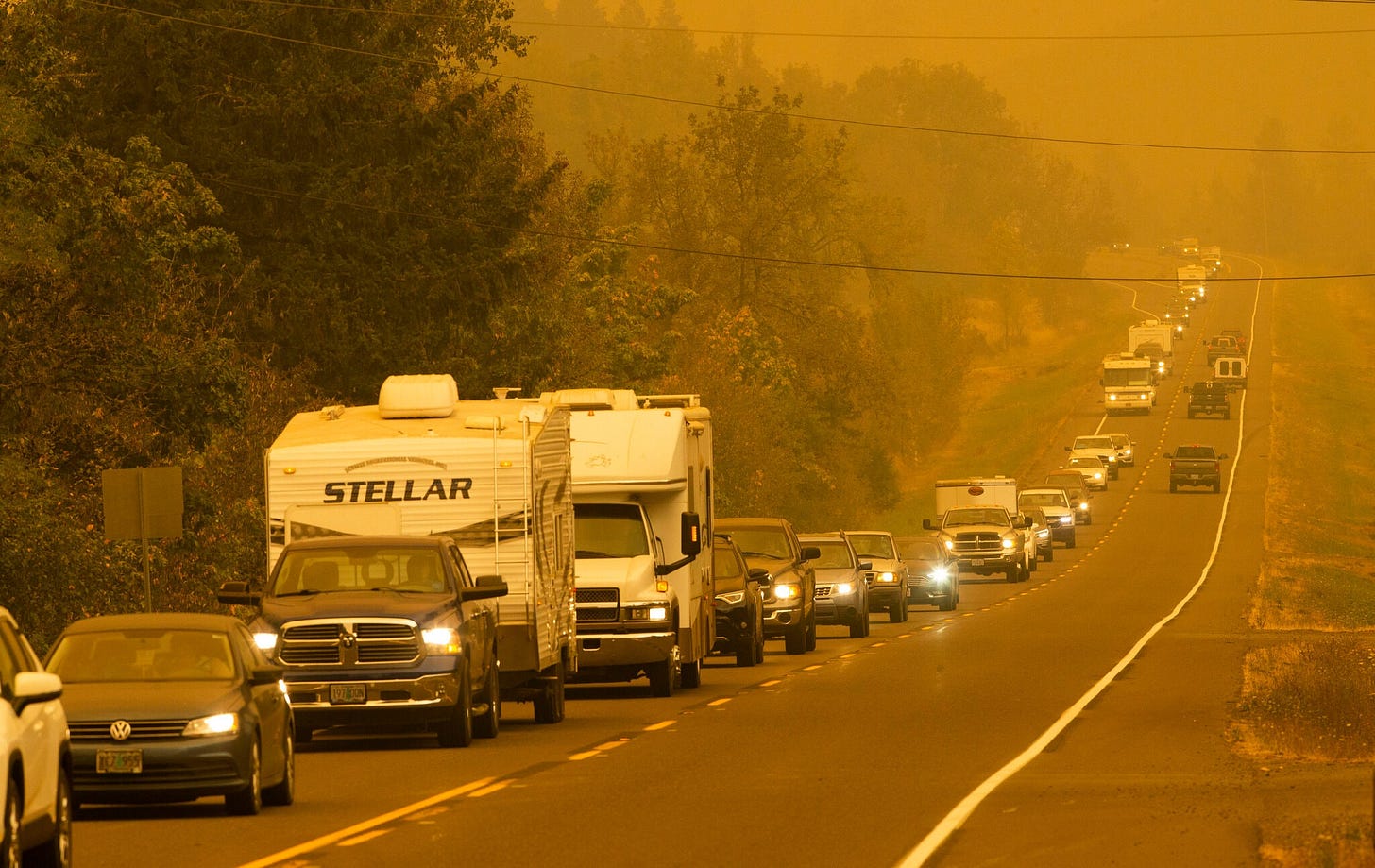It’s been a hellish couple weeks. Yesterday I scrolled through picture after picture on Twitter; ashy tangerine skies turned dark by smoke plumes above our atmosphere; temperatures dropping because the sun disappeared. I’ve been in the midst of wildfires, in the middle of them and right next to them, always holding the word apocalyptic in my mouth, never releasing it. It’s a sensational word. It applies here.
There are so many statistics I could list here, but I’m short on time. I’ll say this. These fires are absolutely unprecedented. I’ve heard their scale compared to that of the great fires of 1910, but it’s larger than that, more widespread, and more destructive. These are historic fires that mark the beginning of the full climate shift, though it was truly marked only two years ago, in 2018.
That we didn’t make the necessary changes after the town of Paradise burned is a missed opportunity. If we had implemented aggressive off-season burning, slowed down logging (which creates a terrible feedback loop of unhealthy forests), and begun to enact something akin to a Green New Deal, we may not be seeing fires like this right now. Instead, things went on as usual. The head of the Forest Service said sure, we may transition to a full-time work force, but didn’t. She should have. The move towards more firefighters working year-round, towards partnerships with non-profits and Indigenous people, towards creating more ecological health and education for communities— it wasn’t prioritized, and we are now facing the consequences.

(Chris Pietsch, Eugene Register Guard)
I know it may seem like this is happening out of nowhere, a surprise. But many of us knew this was coming. It could have been prevented. Of course, you could say that for the whole of climate change. We’re busy with other things. We don’t take action until it’s too late.
Now is the time. In your community, you need to advocate for a relationship with fire. What are departments doing in your community to implement off-season burning and create barriers to prevent burnovers? Do they have the resources they need to do their jobs properly? Have people sucked them dry financially because they deem their services unworthy of the required tax dollars?
No government is going to come in and change this. The Forest Service isn’t going to hire people year-round unless there’s massive pressure to do so. We need a gargantuan shift, fast as an earthquake, not a glacier. It needs to happen now. When fire season is over, we need to burn where we can. The public needs to accept that there will occasionally be smoke, but that smaller amount of smoke will prevent the burnt umber skies, the heaviness in the pits of our stomachs.
Don’t throw your hands up. There’s a solution.
We are all connected to these communities, in some way or another. If you aren’t being affected by these fires, and have the means to help, please get involved and help those who are now houseless. Mobile home parks have been decimated. We forget that these rural areas aren’t wealthy, but primarily middle-class, lower middle-class, poor. We need to fight for them and to advocate for them. We need to help them rebuild, more safely, with more fire-resistant infrastructure.
I want you to know: I have hope. That’s why I’m writing my book. I’ve looked closely at the history, and I know my words can be drowned out by those with less information and more self-interest. Logging companies. Extractive industries. No. We can’t let these things dictate our actions anymore. We need to treat our land with respect. We need to give it its fire back.
Stacy





Thank you for this info and perspective! It's so heartbreaking how preventable this disaster is but we can't give up!